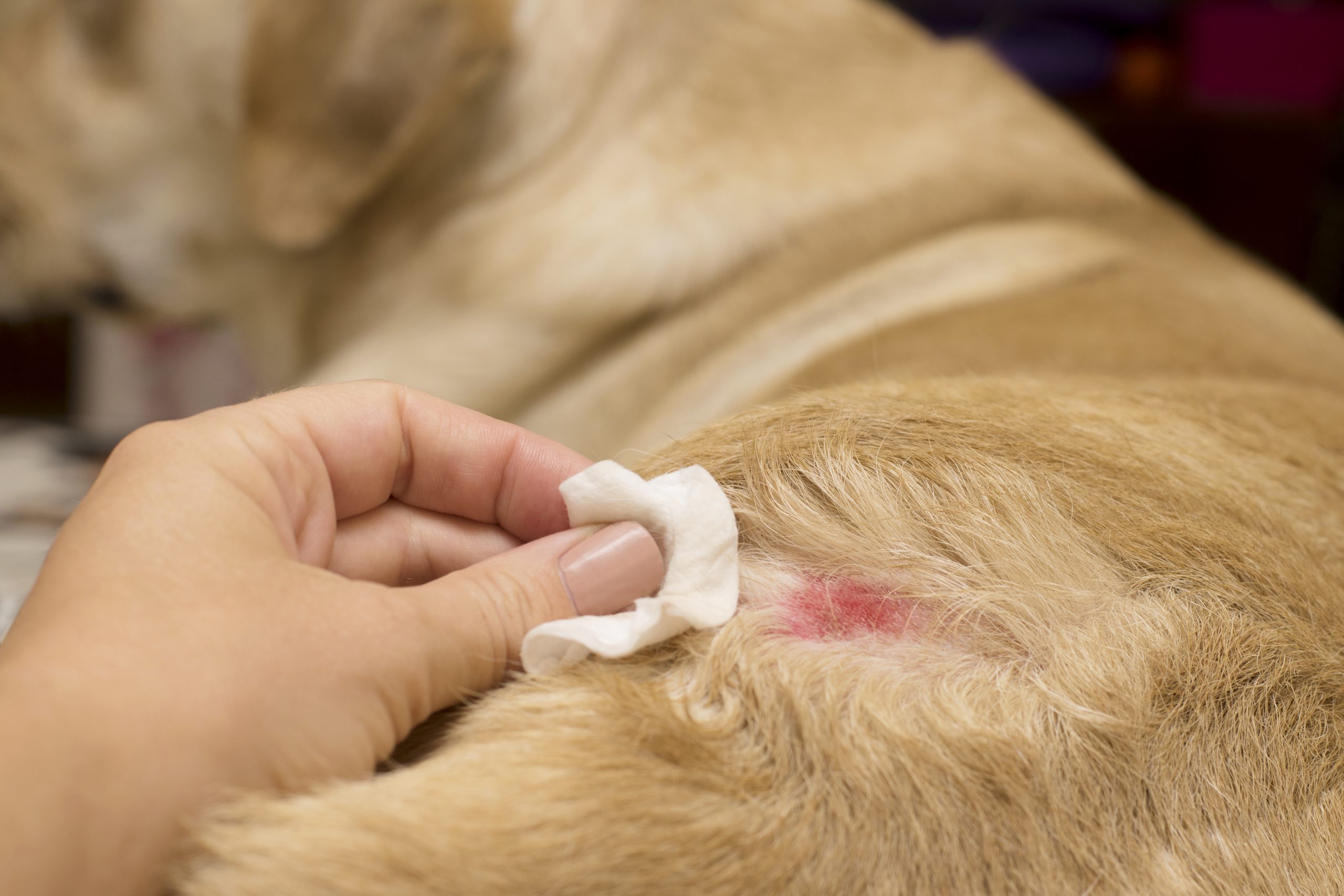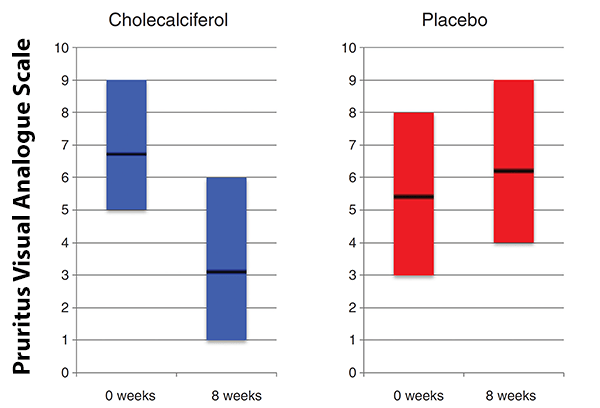
Published in Veterinary Record (1) is an interventional study on the effects of vitamin D supplementation on dogs with atopic dermatitis.

Conclusion:
Oral vitamin D decreased both pruritus and also acute and chronic skin lesions in dogs with AD. The improvement in the dogs with pruritus was significantly correlated with an increase in serum 25-OH-D3
Discussion:
Vitamin D quickly becomes the powerful hormone calcitriol within key cell groups such as white cells and mast cells regulating the innate immune response.
This study supports the findings of Kovalik (2) that found dogs with atopic dermatitis did better on pred when vitamin D stores were higher.
Vitamin D insufficiency is commonly found in dogs consuming a wide range of commercial food (3) and is exacerbated by age, neuter status, disease, and medication, warranting annual testing and D3 supplementation (as needed).
Atopic dermatitis is a major problem in companion animals and these studies help substantiate vitamin D efficacy as well as its role in the innate immune process.
References:
- Klinger, C (2018) Vitamin D shows in vivo efficacy in a placebo-controlled, double-blinded, randomised clinical trial on canine atopic dermatitis. Vet Record.
- Kovalik, M (2012) Prednisolone therapy for atopic dermatitis is less effective in dogs with lower pretreatment serum 25-hyroxyvitamin concentrations. Vet Dermatol
- Sharp, C (2015) The effect of diet on serum 25-hydroxyvitamin D concentrations in dogs. BMC Res Notes
